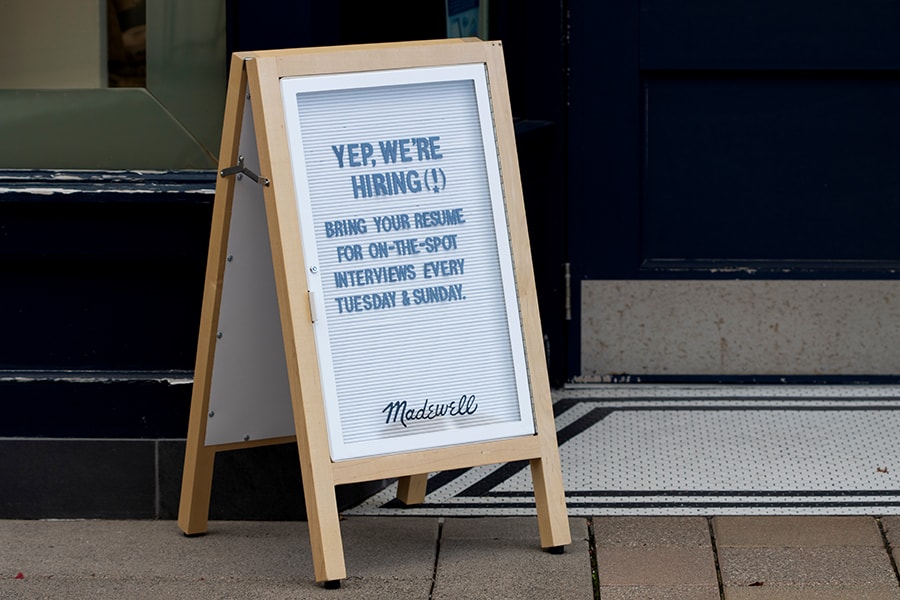
Americans are flush with cash and jobs. They also think the economy is awful
Workers have seized the upper hand in the labour market, attaining the largest raises in decades and quitting their jobs at record rates
 The hiring sign at the entrance to a Madewell retail store in Tigard, Oregon. Workers left their jobs at a record pace in August, led by food and retail industries.
The hiring sign at the entrance to a Madewell retail store in Tigard, Oregon. Workers left their jobs at a record pace in August, led by food and retail industries.
Image: Shutterstock
Americans are, by many measures, in a better financial position than they have been in many years. They also believe the economy is in terrible shape.
This is the great contradiction that underlies President Joe Biden’s poor approval ratings, recent Republican victories in state elections and the touch-and-go negotiations over the Biden legislative agenda. It presents a fundamental challenge for economic policy, which has succeeded at lifting the wealth, incomes and job prospects of millions of people — but has not made Americans, in their own self-perception, any better off.
Workers have seized the upper hand in the labor market, attaining the largest raises in decades and quitting their jobs at record rates. The unemployment rate is 4.6% and has been falling rapidly. Cumulatively, Americans are sitting on piles of cash; they have $2.3 trillion more in savings in the past 19 months than would have been expected in the pre-pandemic path. The median household’s checking account balance was 50% higher in July than in 2019, according to JPMorgan Chase Institute.
Yet workers’ assessment of the economy is scathing.
©2019 New York Times News Service







